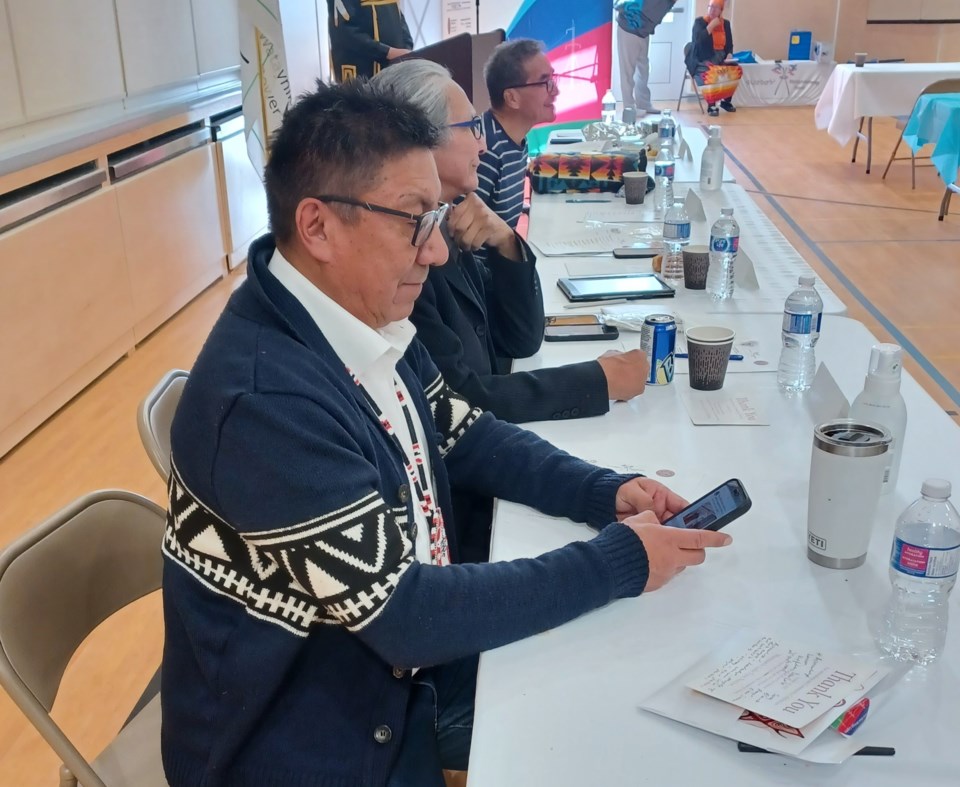Bill C-61 begins a “long process of developing standards and regulations for safe, clean drinking water, wastewater and source water that respects the sovereignty of NAN communities.”

NationTalk: NWONewswatch.com – WABIGOON LAKE OJIBWAY NATION – The people in this First Nation community just south of the Trans-Canada Highway were living under a boil-water advisory for about half of 2023, because of some faulty equipment at its water treatment plant.
The “supply chain issues” that hit Canada’s economy during the COVID pandemic meant a months-long wait for parts to come in, Chief Clayton Wetelainen said Tuesday.
Still, he said, Wabigoon Lake’s in a better situation than many northern First Nations where drinking water advisories have been in place for years.
So Monday’s introduction of Bill C-61, the proposed First Nations Clean Water Act, is surely a welcome development – right?
Nishnawbe Aski Nation Grand Chief Alvin Fiddler, who represents 51 First Nations in Treaty 5 and Treaty 9 territories, said in a news release that NAN “welcomes progress through the development of standards and regulations.”
But the bill “is just the first step in the long process of developing standards and regulations for safe, clean drinking water, wastewater and source water that respects the sovereignty of NAN communities.,” he said.
Fiddler said there are long-term water advisories in 12 NAN communities and First Nation leaders “have demanded solutions for years.”
The NAN communities living under long-term water advisories are Neskantaga, Eabametoong, Marten Falls, Mishkeegogamang, North Caribou Lake, Bearskin Lake, Sandy Lake, Muskrat Dam Lake, Fort Severn, Deer Lake, North Spirit Lake and Nibinamik.
Neskantaga First Nation has, according to its website, had a boil-water advisory in place for over 10,500 days – more than 28 years.
Indigenous Services Minister Patty Hajdu, the MP for Thunder Bay-Superior North, said Monday that all First Nations were provided with the draft Bill-C61 and many communities were consulted. Neskantaga Chief Chris Moonias told the CBC his fly-in First Nation with the longest boil-water advisory in Canada was not consulted.
NAN pointed out that the legislation comes nearly a year after the deadline for First Nations water legislation set in the 2021 settlement of a class-action lawsuit pressed by First Nations against the federal government.
NAN does, however, “support legislation that enables our communities to develop their own standards and regulations in a manner that encourages them to exercise their sovereignty,” Fiddler said in the organization’s news release.
Among other things, Bill C-61 would establish minimum standards for drinking water and wastewater in First Nations and require that federal funding at least meets commitments made in the 2021 Safe Drinking Water for First Nations Settlement Agreement.
After tabling the bill in the House, Hajdu told reporters in Ottawa that “First Nations made it clear they must have the tools and powers to protect their inherent right to clean water” and said C-61 sets “a new path of law-making together” between Canada and First Nations.
Grand Council Treaty #3, which represents Wabigoon Lake and nearly 30 other First Nation communities, did not respond Tuesday to requests for comment on Bill C-61.
Wabigoon Lake’s Chief Wetelainen, meanwhile, said he won’t comment on the legislation until he has had a chance to review it in depth. He also said his community is getting a new water plant, with construction projected to begin in 2025.